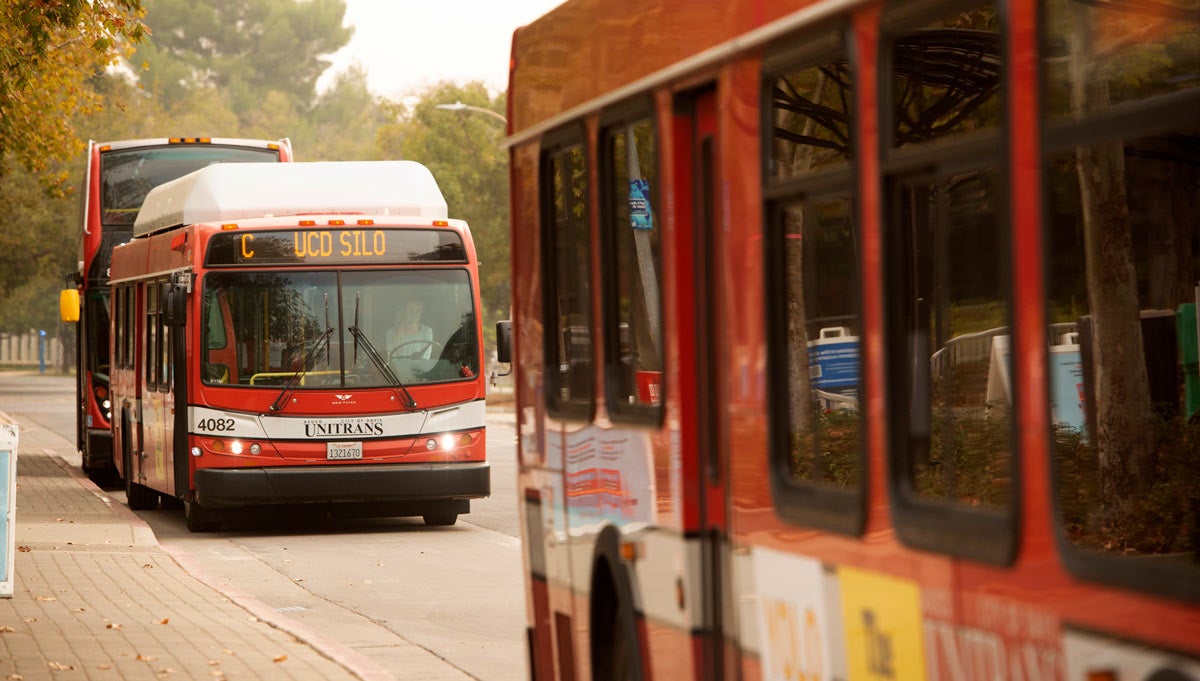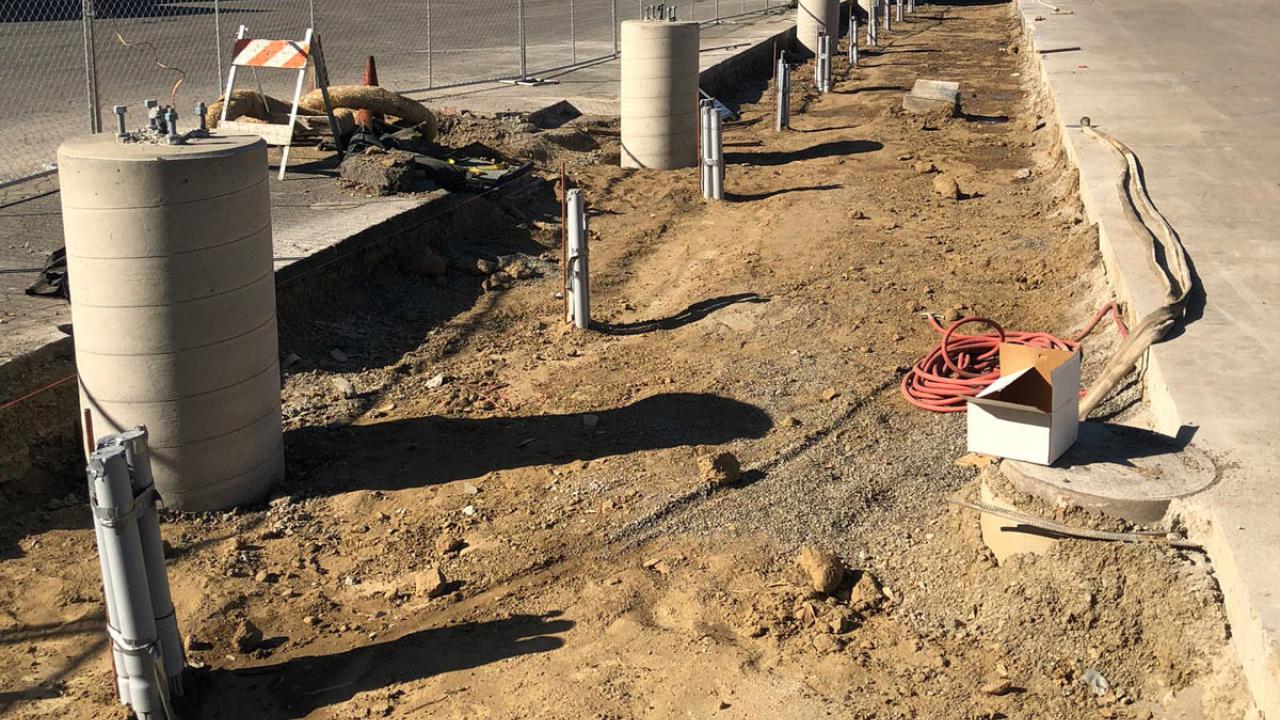Quick Summary
- Campus-city transit system secured funding for five more battery electric buses, for a total of 11
- Charging infrastructure going in at bus yard in preparation for launch of electric service in fall 2021
- Electrification reflects shared sustainability goals of the Unitrans partners: the ASUCD and the city of Davis
ASUCD Unitrans recently received a federal grant to buy five more battery electric buses, which means the campus-city transit system now has funding for 11 of the buses — three shy of the first major milestone on the way to electrifying the fleet and achieving greater sustainability.
The $3.76 million grant from the Federal Transit Administration will cover 80 percent of the cost of five buses; student fees will pay the remainder.
The FTA grant went to the ASUCD’s transportation partner, the city of Davis, which transferred the money to UC Davis. The ASUCD — the Associated Students of UC Davis — runs the system.
Unitrans’ existing fleet runs on compressed natural gas. As those buses reach retirement age, they will be replaced with the emission-free (and quieter) battery electric vehicles.
The first five or six new buses are expected to go into service in fall 2021, marking the university’s second switch to electric buses. The first was the Causeway Connection, which started running between the Davis and Sacramento campuses earlier this year, operated by Yolobus and Sacramento Regional Transit in partnership with UC Davis.
Sustainability in transit
The Unitrans electrification project, reflecting shared priorities of the campus and city around sustainability, is slated for completion by the early 2030s.
Jeff Flynn, general manager of Unitrans, said electrification highlights the strength of a town-gown transit partnership working toward shared environmental objectives, “making sure we are helping save the planet together.”

A grant from the Sacramento Area Council of Governments is going toward improvements at the Unitrans bus yard and maintenance facility: The project includes electrical infrastructure flor bus charging; concrete pavement in place of asphalt across half of "The Pad," as Unitrans calls the bus yard; and landscaping and drainage.
The contractor is installing conduit and underground vaults to deliver power to the charging stations for the initial batch of 14 buses, and laying the groundwork for more charging stations in the future.
“It’s very exciting to see Unitrans continue to innovate sustainably,” said Camille Kirk, director of the Office of Sustainability who also serves as the campus sustainability planner. “Sustainability on a college campus requires that we strive for environmental protection, social equity and climate justice, and financial stability, all while also connecting back to our teaching and research mission.
“Unitrans’ electrification efforts hits on all aspects — not only will the buses be fueled by renewably produced electricity to lower greenhouse gas emissions, but they also reduce air pollution, provide new opportunities to learn about operation of an electric bus fleet and will reduce costs."
Essential transportation

Unitrans scaled back service after many students went home when the pandemic hit the West Coast seven months ago, but never stopped running through spring and summer, providing essential transportation for the campus and city communities.
With the start of fall quarter, Unitrans expanded its weekday service with a schedule that brought buses back to the Silo Terminal for the first time since March.
Passengers are required to wear face coverings, as are drivers. Unitrans strives to limit the number of passengers to 15 if possible and asks passengers, when selecting their seats, to spread themselves out from other passengers. All seats and interior hard surfaces are sanitized daily.
“I can’t speak highly enough about our staff,” Flynn said. Coupled with the grant funding for more battery electric buses, he added, “This is a feel-good moment for us.”
Media Resources
Nathaniel Curiel
